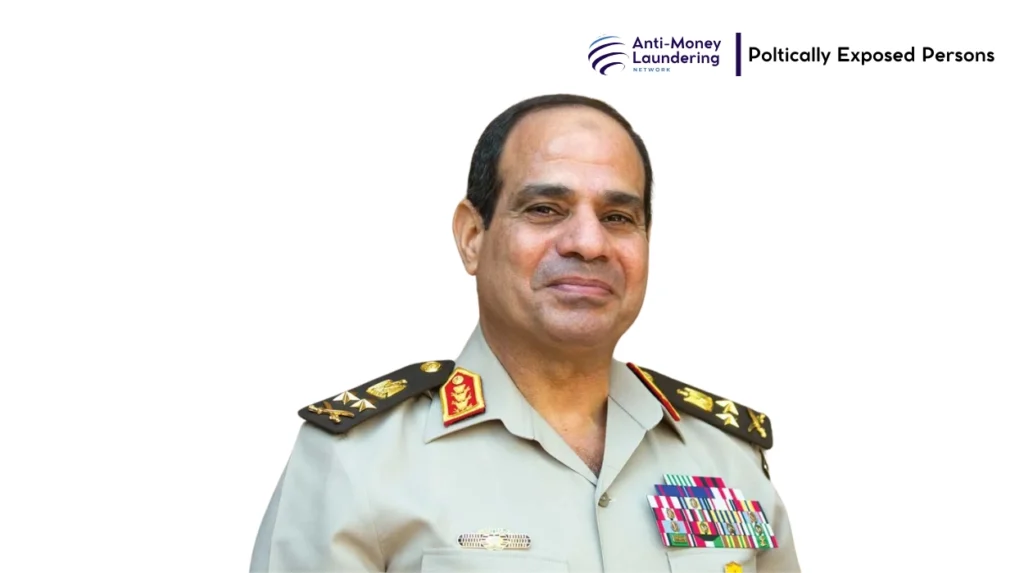Abdel Fattah el-Sisi is a prominent Egyptian politician and retired military officer who has been serving as the sixth and current president of Egypt since 2014. Known for his strong military background, el-Sisi rose to power following the political upheaval during the 2011 Egyptian revolution and the subsequent overthrow of President Mohamed Morsi in 2013. His presidency has been marked by efforts to restore stability, though often criticized for authoritarian measures. His leadership continues to shape not only Egypt’s domestic politics but also its foreign policy on the global stage.
Early Life and Background
Abdel Fattah el-Sisi was born on 19 November 1954 in Cairo, Egypt, in the historic neighborhood of El-Gamaleya. His full name is Abdel Fattah Saeed Hussein Khalil el-Sisi. He grew up in a family with modest means; his father, Said “Hassan” el-Sisi, owned a bazaar shop, and his mother was Soad Mohamed. Raised in a Muslim household, el-Sisi’s religion consistently plays a role in his public image and political stance. From a young age, he lived through pivotal historic moments, including the wars between Egypt and Israel, which left a profound impact on him.
Personal Life: Family, Spouse, and Children
Abdel Fattah el-Sisi’s family is relatively private but well-documented. He is married to Entissar Amer, his maternal cousin, since 1977. The couple has four children: three sons named Mustafa, Mahmoud, Hassan, and a daughter named Aya. His personal life remains largely out of the public spotlight, though it is known that his family life parallels traditional Egyptian values, rooted in close family ties and Islamic faith.
Career and Achievements
Abdel Fattah el-Sisi graduated from the Egyptian Military Academy in 1977 with a diploma in military sciences and went on to receive further military education, including studies at the Egyptian Command and Staff College and the Joint Command and Staff College in the United Kingdom. He also earned a master’s degree from the U.S. Army War College in Pennsylvania.
His military career began in the infantry corps, where he progressed to command a mechanized infantry division and eventually served as chief of staff of the northern military zone. He held several key military positions, such as Director of Military Intelligence and Reconnaissance, Commander of the Northern Military Region, and ultimately Minister of Defense appointed in August 2012 by then-President Mohamed Morsi.
Following mass protests against Morsi’s presidency, el-Sisi led the 2013 Egyptian coup d’état, which removed Morsi from power in July 2013. He justified this move by citing the need to restore security and protect the nation from political instability. El-Sisi was subsequently elected president in 2014 and has been re-elected since, with his administration focusing on crackdowns on opposition and security challenges, including combating jihadist insurgency in the Sinai Peninsula.
Among his notable achievements is Egypt’s pivotal role in mediating ceasefires between Israel and Palestine, showcasing his influence on regional diplomacy. He has also emphasized infrastructure development and economic reforms to address Egypt’s economic challenges.
Lifestyle, Wealth, and Assets
Abdel Fattah el-Sisi’s net worth remains a subject of speculation, as with many high-profile leaders, particularly those with a history in military leadership and politics. Official transparency regarding his personal wealth is limited; however, he resides in the official presidential residence often referred to as the Abdel Fattah el-Sisi palace in Cairo. Public reports and imagery suggest a lifestyle befitting a head of state, including access to state assets and luxury transportation, such as an official Abdel Fattah el-Sisi car, though specific details about personal assets like yachts or private estates are less documented.
His wealth and asset holdings are closely tied to his position, reflecting the common profile of political leaders in the region, but not extensively publicized.
Influence, Legacy, and Global Recognition
As a former general and current president, Abdel Fattah el-Sisi’s position on the global stage is significant. He is recognized internationally for his role in maintaining stability in Egypt, a key player in Middle Eastern politics. His tenure has included chairing the African Union and playing a strategic role in Arab coalition discussions relating to regional security.
He is viewed as a strongman leader by many analysts, with a political style characterized by centralized control and limited tolerance for dissent. His administration’s human rights record has drawn international criticism, with some observers noting an increase in authoritarian governance compared to predecessors.
His foreign policy notably includes a pragmatic stance towards Israel and ongoing efforts to balance relationships between Western powers and regional allies.
Financial Transparency and Global Accountability
As a politically exposed person (PEP), Abdel Fattah el-Sisi is subject to global scrutiny concerning financial transparency and accountability. Given his extensive military and political career, there are heightened expectations for transparency around his financial affairs to prevent conflicts of interest, corruption, or illicit enrichment. Egypt’s political environment under his rule faces ongoing international pressure to adhere to standards of financial probity and anti-corruption measures.
While official disclosures about his personal finances are scarce, and state oversight mechanisms are often viewed as inadequate by critics, there is global recognition of the importance of monitoring the assets and expenditures of figures such as el-Sisi for good governance and accountability.
Abdel Fattah el-Sisi remains a defining figure in Egypt’s contemporary history. From his early life in Cairo to his steady rise through the military ranks, and ultimately to the presidency, he has exercised considerable influence over Egypt’s political direction. Despite controversies surrounding his rule—especially regarding human rights and political repression—his leadership has shaped the nation’s stability and international relations. His legacy will likely be debated for years to come, as a symbol of authoritarian resilience intertwined with national security and economic challenges, marking him as a pivotal leader in the 21st-century Middle East.

